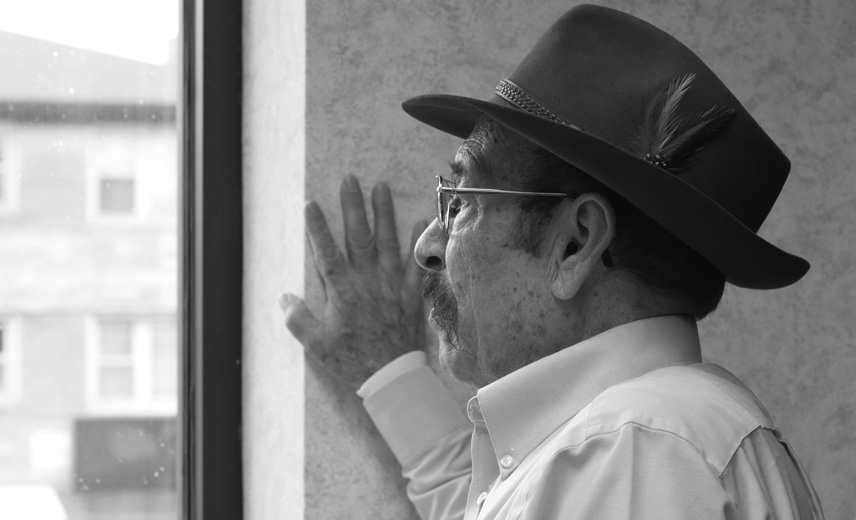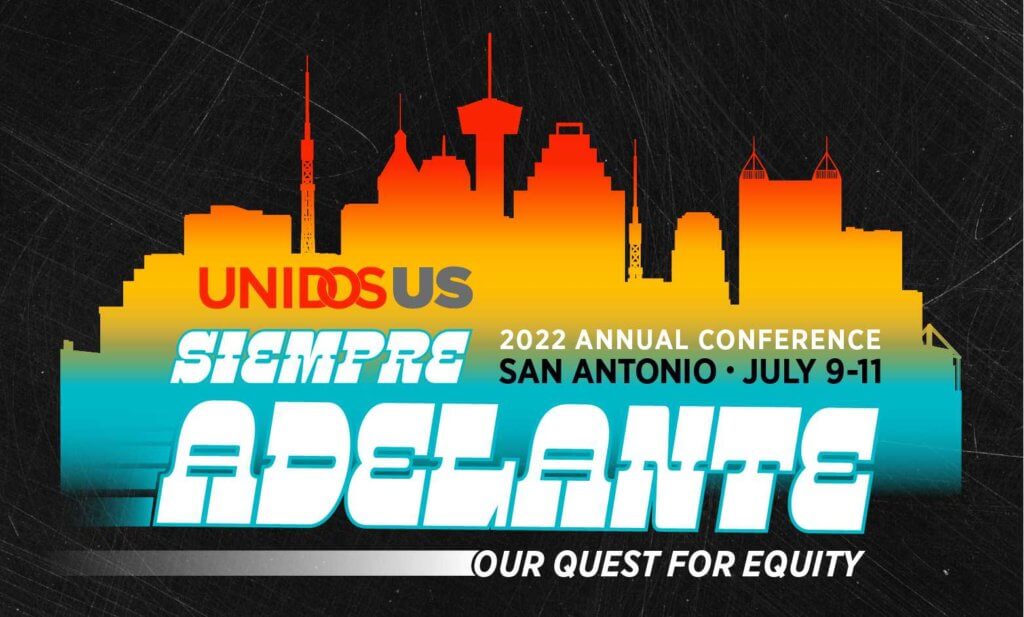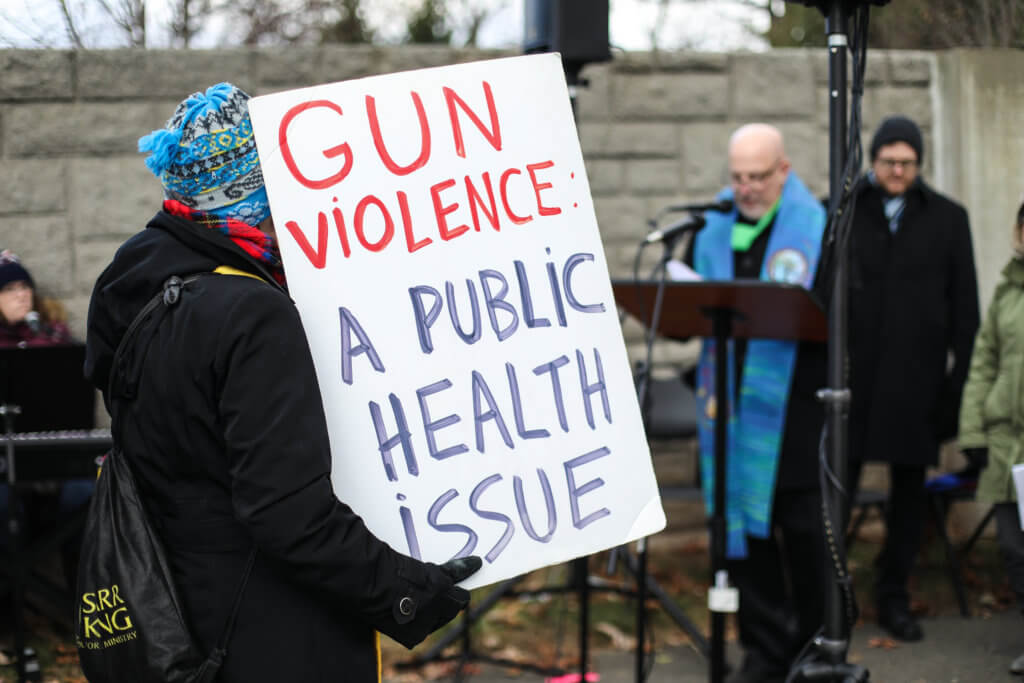Helping Parents Manage Mental Health for Themselves and Their Children
In a recent webinar workshop presented by UnidosUS Padres Comprometidos in collaboration with The Administration of Families and Children (ACF) and the Substance Abuse and Mental Health Services Administration (SAMHSA), Dr. Ilan Shapiro, a Los Angeles-based pediatrician, started what many Latinos would consider to be an awkward conversation on mental health. He did so with a warm smile and a few slides depicting his family – which included his children and their mother.
Author Julienne Gage is a former UnidosUS staff member and longtime contributor to ProgressReport.co.
At first glance, everything in Dr. Shapiro’s life was idyllic, sounding almost like a sales pitch, but that’s when the big reveal happened.
“Nobody panic,” he said. “I’m not divorced.” He stated this to emphasize that now they were a family unit and his children’s well-being was most important.
He then took a brief, allowing the audience to pass through a range of familiar emotions like shock, loss and grief, and then he said that he and his wife managed to keep one very important element of their lives in check throughout this process: the children.
“We know they’re the most important thing we have,” he said.
One goal of the presentation was to destigmatize the kind of emotional upheaval Latino families have been going through in recent years during events like the COVID-19 pandemic, a tumultuous economy with a rising cost of living, mass shootings and the United States’ legacy of racism and inequality. The other was to help parents practice self-care, so that they could be better at shielding their children from a world of stress they may also be experiencing at school or in their social environments.
“I’m not going to lie. These times are having a major impact on couples— possibly a divorce, and all of these things accumulate in us,” Shapiro said. “If it’s hard on us, imagine how hard it is on our children. They don’t have those tools or experiences to develop the thick skin for what’s happening.”
The topic of mental health gained considerable recognition since the pandemic, and in fact, was written into the educational portion of the $1.9 trillion American Rescue Plan, which runs until 2025. That plan recognized the need for a whole-child approach to learning that merges academia and mental health since one area of a child’s life can affect another.
UnidosUS drove that message home in a 2023 report titled “Accelerating Latino Student Recovery: An Agenda to Strengthen Our Schools and Help Students Succeed.” The report noted that on average, Latino students needed six months to catch up to the academic achievement levels they had attained prior to the pandemic, but getting there would require a whole-child approach, one that looks at academic and psychological needs together.
In addition to providing greater access to and awareness of mental health services, UnidosUS believes Latino students would benefit from greater diversity and multilingualism in the educator workforce, and a workforce in which all educators and school administrators are trained to provide a welcoming, identity-affirming environment for their diverse students.
“For Latino and other systematically underserved students to succeed— and for our country to prosper in the future— we must ensure that recovery efforts fund promising or proven whole child approaches to address the immediate and long-term impacts of the pandemic and make investments to dismantle the deep inequalities entrenched in our public school system,” the report stated.
One of the best ways to ensure this is by authentically engaging parents in the planning and implementation of such practices.
That’s where Padres Comprometidos comes in. The bilingual curriculum allows parents an opportunity to compare notes on the academic, social and emotional development of their children while also creating a space for them to deal with concerns they have. In fact, the report quoted one Padres Comprometidos participant as saying “I love these meetings. They’ve given me an opportunity to unwind and see how I am not alone.”
The inspiration for increased parent-engagement trainings
One big impetus for increased parent-engagement programming was the May 2022 mass shooting at Robb Elementary in Uvalde, Texas, which claimed the lives of 19 students and two teachers. UnidosUS could see that there was no shortage of humanitarians seeking to provide meals, money and counseling to the grieving families of victims, but with more than five decades of experience, it also knew that support would wane over time. As such, it decided to play the long game, and focus on a wider cohort of local families who were hurting even if it wasn’t their child who had been killed.
From January to September of 2023, UnidosUS provided funding, training and listening ears for nine monthly meals to about 350 staff and families associated with its Affiliate organizations AVANCE and Chicanos Por la Causa. The goal was to help them transform their grief, anger, and rage into civic engagement strategies that could work to stop violence and other social ills while creating a greater system of support when tragedies happen.
The program was called “Juntos con UnidosUS/Together with UnidosUS” and each month, participants would eat, talk, cry and plan together, relying on their own family coordinators to drive their communion and conversation toward this goal. Most UnidosUS staff stayed to the sidelines, dropping in on just a handful of the meals while encouraging affiliates to drive the meetings.
During the first few months, the program focused on creating a safe space for participants to express their grief and anxiety while Rodriguez, the one constant UnidosUS staff presence, listened and asked questions. One of those questions was what made participants hopeful, and along with that, he asked them to consider the programs AVANCE and Chicanos Por La Causa offer that help them get them to that emotional state.
In July 2023, about halfway through the program’s cycle, the U.S. government’s Administration of Children and Families (ACF) invited several of the participating families to join families from other Affiliate organizations at the UnidosUS Annual Conference in Chicago to share their parental concerns and their ideas for improving their children’s academic, social and emotional outlook. That meeting, as well as the regular dinner parties in Uvalde, served as focus groups, ones from which UnidosUS was able to draw up a larger set of trainings like this latest webinar.
“After the ACF listening session, the families felt as if they were being heard and that someone really cared and worried for them,” UnidosUS Director of Parent and Community Engagement and Padres Comprometidos Founder Jose Rodriguez told ProgressReport.co. “This partnership with ACF and SAMHSA has given the families a sense of hope and hearing from a parent like Yei has inspired other families to speak up and ask for help. Yei has a lived experience that other families are experiencing, but do not know where to turn. This webinar provided them with information and phone numbers where they can seek the help needed.”
Preparing our children for a brighter outlook
Back in that webinar, Dr. Shapiro not only bore his own soul, he offered a phone number where anxious or depressed parents could bare theirs either by calling or texting 988, much like a person calls 911 for a fire or a medical emergency.
“Familia, in this moment there are things we can do,” he reminded the audience, and then drove the message home further by saying how important it was to do it for those around us as well.
“The idea is that we can really connect in these difficult times,” Dr. Shapiro explained. “The same way that we would call 911, and I hope you’d do it for me. If I’m having a heart attack, then call for me, and it’s the same idea if I’m having a mental health crisis.”
Toward the end of the webinar, Rodriguez asked Yei Narvaez, a Latina single mom based in Chicago, to share how mental health services had made a difference in her life and that of her child. Yei had recently gone through a divorce. At first, she felt irritable and regularly burst into tears. Then she started noticing her young son was also having emotional outbursts. She knew they both needed help, but she had a lot of fears.
“Going to therapy comes with a lot of stigmas,” she said. “You grow up learning that if you go to therapy, you’re crazy or you feel judged and like ‘Oh wow! If I go, they could take my child, right?’”
When she began experiencing panic attacks, she decided it was time, and soon both she and her son were learning strategies such as pausing to name and explore the emotions they were feeling or tapping ten times on various parts of the face and chest as a calming technique.
Rodriguez applauded her efforts. He said 77% of Latino parents have expressed the kinds of anxiety and stress she described, while 72% of those parents also worried their children were experiencing them too.
“To give better care to our children it’s important that Latino families take care of themselves first and that they know how to have the conversations within the family,” he said.




